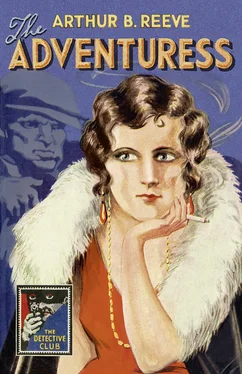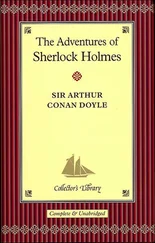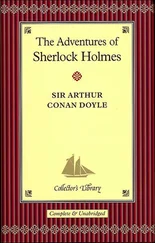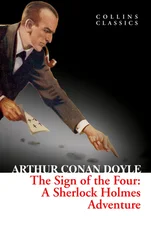I smiled. ‘Was he a friend of Paquita’s, too?’ I hazarded, watching Henri’s face.
He lifted his eyebrows a fraction of an inch. ‘No more than of the rest,’ he returned, with a deprecating gesture. ‘Pretty faces and figures all look good to Shelby,’ he added, with a smile; then, seriously: ‘But he will settle down. We will see him here no more, some day. Also I know his brother-in-law, Messtair Walcott. I do not like him.’
‘Why?’ I asked, somewhat amused at getting his point of view.
‘Too quiet. He will come in, not often, perhaps, bow, maybe speak, then go away.’
I thought I ‘got’ him. One must be a good spender to appeal to Henri. I could not imagine Johnson Walcott as such. In fact, I could scarcely imagine him coming to Henri’s at all.
‘Paquita was quite intimate with Marshall Maddox, wasn’t she?’ I ventured again.
Henri brought into play his ready shrug. It was not for him to say anything about his patrons, much less about the dead. Still, his very manner gave the impression that his lips would not frame.
‘Did anyone ever seem to be watching him here?’ I asked, the thought of the sallow-faced man at Westport recurring to my mind.
Henri stopped matching his cheques and looked up. Was he growing suspicious of my disinterestedness?
‘Such things are not unusual,’ he answered, showing a fine assortment of ivory beneath his black moustache.
I met his eye frankly. He seemed to understand.
‘Not for the Star, you understand?’ he nodded, still looking at me fixedly.
‘Oh, no, no!’ I hastened, truthfully. ‘I am not playing reporter now, Henri.’
He appeared to be satisfied, and it did not occur to him to inquire why else I should be interested.
‘Yes,’ he went on slowly, ‘he has been watched. I have seen it myself. Several times there was a man who came in, Spanish-looking.’
‘Did Mr Maddox know it?’ I inquired, more eager than ever.
Henri shook his head negatively. ‘Not until one day when La Paquita was talking to the man. Monsieur came in unexpectedly.’
The manager laughed a little to himself.
‘Why do you laugh?’ I asked. ‘What happened?’
‘Nothing,’ he returned. ‘It was not what happened. It was what she told him. So clever, too. She said it was a detective set to trail him by Mrs Maddox, that she had flirted with the man and found out.’
‘Then you do not think he was a detective?’ I asked, puzzled.
‘How should I know?’ replied Henri, with another question. ‘It might have been. It might not have been. She is clever.’
‘What did Maddox do?’ I persisted. Was he more cautious?’
Again Henri shook his head. ‘He gave orders that the man was not to be admitted. And we? He was a ver’ wealthy man, Mr Maddox. We could not afford to lose him.’
‘But this Spaniard,’ I reiterated, convinced it was the same man whom we had seen at Westport, ‘isn’t it possible that Mrs Maddox really did pick him out as a detective in the hope that he might get acquainted with Paquita and so report on her husband?’
‘We are just guessing, monsieur,’ dodged Henri. ‘I speak only of the things I know—and not all of them.’
He had evidently told me in substance about all that he was sure of. I knew him of old. Even after he had told his story he liked to leave a sort of ‘continued in our next’ at the close of it, just so that you would not think he was not what Broadway calls a ‘live one.’ I had absorbed about all that he had at first hand. It was enough. It gave me a view of the characters of the chief actors, from an angle which others did not know. I rose nonchalantly, thanked Henri, and sauntered out as I had in the old days when the Star picked on me to expose some new society scandal.
The visit to Henri’s White Light cabaret had shown me one very important thing, however. Shelby Maddox had known Paquita before the night of the gay dinner party preceding the arrival of the Maddox family for the conference on the yacht.
What that might indicate I did not yet venture to guess. And yet I felt sure that it must prove significant. Else why had Paquita arrived at Westport at just that particular time? It seemed as though it must have something to do with the calling of the family conference.
Above all, however, stood forth the strange coincidence of the murder of Marshall Maddox, head of the family, and the stealing of the telautomaton, the most valuable single piece of property that the family owned. There was mystery enough in this case to satisfy even Kennedy.
CHAPTER VI
THE POISON GAS
A GLANCE at my watch was sufficient to assure me that I should have no time for further inquiries if I wanted to meet Kennedy before going down to the office of Hastings. I wanted to do that, too, for I felt sure that Craig would talk more freely to me than to the rest, and my interest in the affair had by this time become insatiable.
Accordingly, I retraced my steps to the laboratory. Kennedy was still at work, partly over some reactions in test-tubes, but mostly using the strange three-tubed instrument I had noted. As I outlined to him rapidly what I had discovered and the plain inferences to be drawn from it, he listened attentively, still working.
‘Very good,’ was Kennedy’s sole comment as I concluded my story. ‘That’s very interesting—possibly very important. It begins to look as though Maddox had been in someone’s way and that that someone was taking no chances in order to “get” him.’
‘What have you discovered so far?’ I hesitated, not sure yet whether he was willing to talk, for Kennedy never said anything, even to me, until he was perfectly sure of his ground.
‘Marshall Maddox was not drowned, at least,’ he vouchsafed.
‘Not drowned?’ I repeated, more to lead him on than because I was surprised.
‘No. Whatever was the cause of his death, he was not killed by drowning. The lungs and stomach show that. In fact, I knew at Westport that he might have died a natural death or might even have been a suicide. But he certainly did not die of drowning. Only more careful tests than either the coroner or I could make at Westport were necessary.’
‘How did it happen, then?’ I continued, emboldened by his apparent readiness to talk.
Kennedy took a bottle with a ground-glass stopper and held it up so that I could see its greenish-yellow contents. Then he pulled out the stopper, covered with vaseline, for an instant and shoved it back again.
The instant was enough. A most unpleasant odour filled the laboratory. I felt a sense of suffocation in the chest, an irritation in the nose and throat, as though by the corrosive action of some gas on the air passages.
‘If we could only have seen him before he died,’ continued Kennedy, ‘I suspect we should have found his face as blue as it was when we did see him, his lips violet, his pulse growing weaker until it was imperceptible, and perhaps he would have been raising blood. It would have been like an acute bronchitis, only worse. Look.’
From a little pin prick which he made on his own thumb Craig squeezed out a drop of blood into a beaker containing some distilled water.
‘This is a spectroscope,’ he explained, touching the instrument I had noticed. ‘I think you are acquainted with it in a general way. Blood in water, diluted, shows the well-known dark bands between what we call “D” and “E.” These are the dark bands of oxyhaemoglobin absorption. Now, I add to this, drop by drop, the water from that bottle which I uncorked. See—the bands gradually fade in intensity and finally disappear, leaving a complete and brilliant spectrum devoid of any bands whatever. In other words, here is a substance that actually affects the red colouring matter in the blood, bleaches it out, and does more—destroys it.’
Читать дальше












